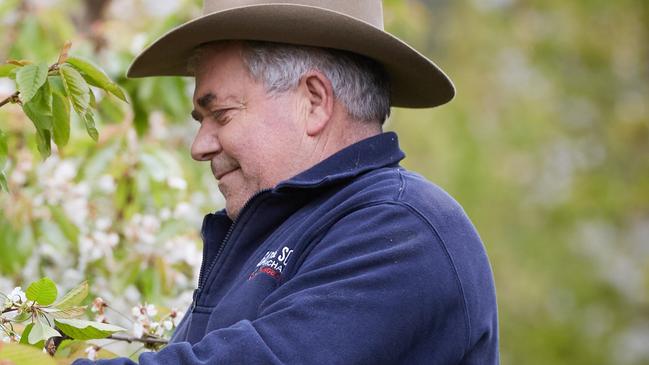Farmers have welcomed the ACCC’s court action against Coles and Woolworths
Farmers have been calling out the major supermarkets for years. They say the ACCC’s case against Coles and Woolworths is a step in the right direction.

Farmers have applauded the consumer watchdog’s decision to sue Coles and Woolworths, saying the legal action would be a deterrent to supermarket misbehaviour and help even the power imbalance between retailers and suppliers.
After a year featuring multiple inquiries into supermarket pricing practices and their relationships with their suppliers, food producers have called for tougher tools for the Australian Competition & Consumer Commission to punish wrongdoing.
NSW orchardist Guy Gaeta, who supplies apples and cherries from his property near Orange to retailers via a wholesaler, said the watchdog’s Federal Court action was a positive step for farmers. “I’m glad they’re doing something,” he said. “Consumers will have to benefit from this.
“What they (Coles and Woolworths) have been doing has been hurting farmers and consumers. They don’t play a very fair field.”
Mr Gaeta said he wanted to see even greater compliance options given to regulators, including stronger fines and divestiture powers.
“I’m sure and certain that having (more power) is better than not having it,” he said.
“I’ve always said to the ACCC, you’ve got to pull out a big stick.
“When you see the way farm businesses are going and it’s taking rural towns down with them, that’s why we’ve been fighting for divestiture powers.
“I see fruit on the shelves for $7 a kilogram, but I’m selling it to the markets for $1.30.”
In a statement to shareholders, Coles said it intended to defend the legal proceedings; Woolworths said it would review the ACCC case.
The Senate inquiry into supermarkets this year recommended the federal government pursue a range of new rules and legislation to combat the power of the supermarket giants, including divestiture powers, establishing a prices commission and making the food and grocery code of conduct compulsory.
Fruit and vegetable growers and dairy farmers told the Senate committee conducting the inquiry that the perishability of their products meant they bore all the risk when negotiating with supermarkets over the price and volumes of their products.
AUSVEG chief executive Michael Coote praised the ACCC’s action and called for further measures to even the playing field.
“While the specific matters before the courts relate primarily to consumer pricing practices, we welcome the ACCC taking a proactive approach to the application of competition and consumer law,” Mr Coote said.
“AUSVEG supports ongoing scrutiny of retailer practices, particularly when it comes to the treatment of fresh produce suppliers, and continues to advocate for measures to help address the current power imbalance.

“This includes supporting a mandatory Food and Grocery Code, which is among the mechanisms called for by AUSVEG during this year’s inquiries into the retailers – and which we are pleased to see the government has released an exposure draft for today.”
Anthony Albanese on Monday said the draft code would apply to Coles, Woolworths, Aldi and Metcash.
Eric Danzi, the chief executive of dairy farmer advocacy organisation EastAUSmilk, said the inquiries and the new court action highlighted the disconnect between farmgate prices and consumer prices and the power retailers had on the market.
“There’s been all sorts of games played by retailers for a long time and pricing and transparency to consumers has never been high on their agenda,” he said.
“I’m not at all surprised the ACCC has taken this action. What surprises me is that it has taken so long.
“The pricing practices of the retailers, Coles and Woolworths, have had a massive impact on the industry over the past 10 years.
“It would be nice to think all products in the same product line have the same margins on them, but that's not always the way it works.”




To join the conversation, please log in. Don't have an account? Register
Join the conversation, you are commenting as Logout